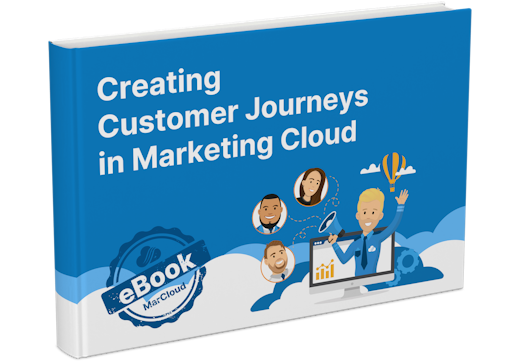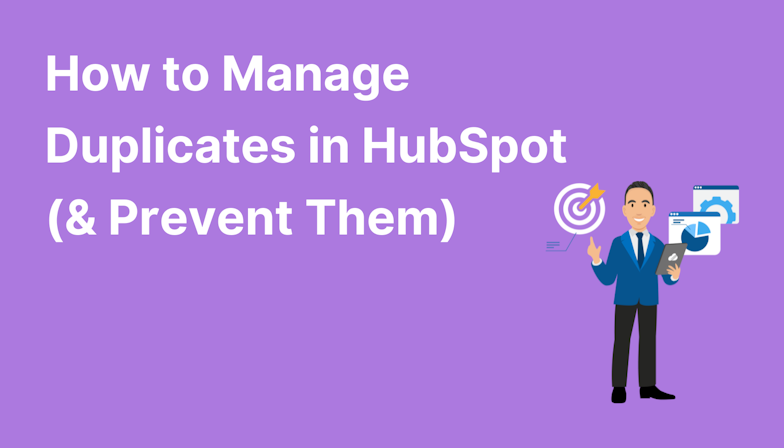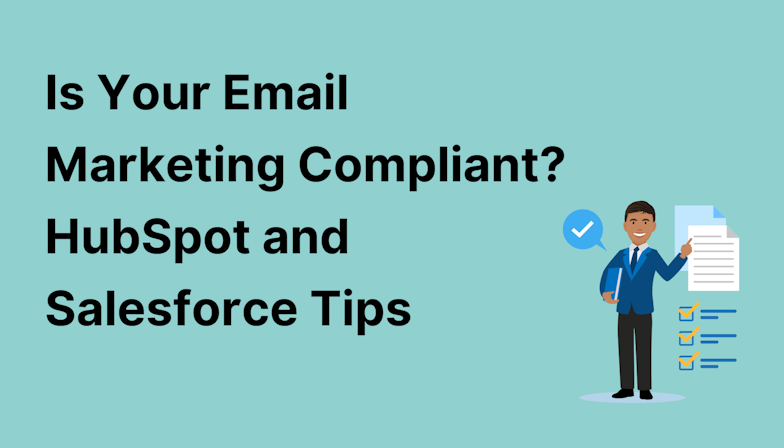The sheer volume of marketing automation platforms available to marketers makes choosing the right tool for your business an overwhelming task. Thankfully, there are ways to whittle the options down. For example, you can search for premium platforms within a set budget, or consider only those that integrate with your existing CRM.
As Salesforce Marketing Cloud specialists, our job, and the purpose of this blog post, is to educate marketers on the features and benefits of Marketing Cloud Engagement. We hope it will help you to narrow down your MAP shortlist and if we’re being truly honest, sway your decision towards SFMC!
The only other marketing automation platform we recommend is ‘Account Engagement’, formerly known as Pardot (also a Salesforce product). Unsure of the differences between Marketing Cloud Engagement and Account Engagement? Read up on those here.
In a hurry? Skip ahead:
- The Salesforce ecosystem
- Out-of-the-box integration with Salesforce
- Global support
- Multi-channel marketing capabilities
- SQL & advanced coding potential
- AI-driven analytics
- An evolving software
1. The Salesforce ecosystem
Before we get into the details of what Salesforce Marketing Cloud can do, let’s take a minute to consider how it forms part of the wider Salesforce ecosystem.
As a whole, Salesforce products enable marketing, sales, customer service, and commerce teams to be fully aligned and successful in their new business and customer engagement efforts. The suite of Salesforce products includes:
- Sales Cloud (sales CRM)
- Service Cloud (customer service management)
- Commerce Cloud (ecommerce experiences)
- Data Cloud (real-time data & analytics)
- Einstein (AI for CRM technology)
Plus many more - not forgetting the topic of this post: Marketing Cloud.
Considering Marketing Cloud as part of the suite of Salesforce products is important because it:
- a) gives businesses the ability to align multiple departments with ease and;
- b) allows you to scale as the business grows.
When you choose Marketing Cloud, you can rest assured that you won’t outgrow the platform within a couple of years and be forced to redo the whole procurement exercise again. It’s designed to support businesses of all sizes, from SMBs to global corporations, with products that meet your requirements across the entire sales and customer journey.
Which brings us to the next point: integration.
2. Out-of-the-box integration with Salesforce
For Sales Cloud or Service Cloud users, Marketing Cloud Engagement is a no-brainer because of its easy integration using Marketing Cloud Connect. Where other marketing automation platforms require a custom-built API integration in order to get Sales Cloud and your chosen software exchanging data, Salesforce has already done the hard work for you.
Granted, there’s some configuration required but ultimately, the out-of-the-box integration between Sales Cloud and Marketing Cloud is a major drawcard.
Having these two platforms integrated means you can provide sales and service reps with consistently branded assets, send email campaigns to segments stored in Salesforce, trigger marketing communications based on Salesforce CRM values, and see email engagement insights directly within the CRM. It also means being able to run closed-loop reporting that truly demonstrates ROI.
Concerned with the technical side of setup or integration? There are plenty of certified consultants and developers around to help, thanks to the global reach of Salesforce.
3. Global support
Salesforce holds a 23.8% share in the CRM market globally, outperforming any of the closest competitors. This equates to more than 150,000 customers worldwide and a huge community of users, which makes seeking support and solutions for marketing and tech challenges alike, much easier than with other marketing automation platforms.
The features of Salesforce Marketing Cloud are powerful, flexible and exciting. You can certainly get enough out of the platform with in-house digital marketers on your team but should you need specialist expertise, or troubleshooting tips from peers, the ‘Trailblazer’ community that comes with being a Salesforce customer is so close - it’s almost cult-like!
Ambitious brands should know that leaders in all industry fields, such as Uber, McCain, BIC, and Siemens, are using Marketing Cloud products. You’ll be in good company.
4. Multi-channel marketing capabilities
Of the thousands of marketing automation platforms out there, a small portion are truly multi-channel. Most are glorified email marketing tools. Marketing Cloud Engagement though, allows you to market across the full range of channels, such as:
- SMS
- Mobile apps
- Social media
- Digital advertising
No need for separate subscriptions to multiple platforms, or switching between tabs to set up an email campaign versus a Facebook campaign using the same creative assets. From one place, it’s possible to launch an integrated, multi-channel approach.
Don’t need a particular channel right now? One of the major benefits of Marketing Cloud Engagement is the ability to handpick certain ‘studios’ or modules that are most applicable to your marketing strategy, with the pricing tailored accordingly. It means you can add on advertising or MobilePush when you need it, really fitting the package to your needs.
5. SQL & advanced coding potential
There aren’t many platforms out there with built-in SQL functionality, but Marketing Cloud Engagement is one of the few. Most useful for businesses with developers and data scientists on-hand, the SQL and coding features available in Marketing Cloud mean that truly any scenario is possible. No matter how complex the requirements are.
Due to this, you’ll never be restricted to what the features of the platform are i.e. only being able to set up audience segments in a certain way or manage databases of a limited size. Marketing Cloud is designed to handle large and complex data sets. You just need the resources and know-how to take advantage of these benefits.
As we mentioned before, if you don’t have the right skills in-house, expert partners *ahem, MarCloud* are available.
6. AI-driven analytics
AI is a hot topic right now, with Chat GPT and other technologies making the news. The truth is, AI has been helping marketers for years already, and ‘Einstein for Marketing Cloud’ is a feature that goes beyond what many other marketing automation platforms include.
Einstein in Marketing Cloud uses Salesforce’s AI to provide nuggets of insights about your audience and campaign engagement, including the best send time, engagement frequency, and content. It makes it easy and fast to optimise based on hard data rather than hours of analysis and guesswork.
While Einstein features aren’t included as standard in all Marketing Cloud editions, they are available as an add-on, with some prerequisites.
7. An evolving software
The digital marketing landscape is fast-changing, and marketing automation platforms must keep up. Marketing Cloud is constantly evolving, with major new releases coming three times a year, plus weekly patch releases and emergency releases if needed.
The technology just keeps getting better; becoming more advanced and adding new capabilities. The knock-on effect is an immediate ability for your marketing to become more sophisticated too!
Granted, no team should be running before they can walk when it comes to marketing automation, yet knowing that when you’re ready, the right features and tools are available to you means having the freedom to test-run tactics without being hamstrung by what your software can do.
Since its inception, Salesforce has made 58 acquisitions. It’s a brand leading the pack when it comes to building out a 360-degree view of the customer. Marketing Cloud Engagement is one of the products available to marketers seeking an end-to-end solution. If you’re in the process of shortlisting MAPs, Marketing Cloud should be on it (at the top!).
When the time comes to implement Marketing Cloud, we’re here to make sure you’re up and running quickly and correctly, with training for internal teams included. To help with framing your business case and securing budget for setup from the start, take a look at our implementation packages.

Anton Minnion
A data scientist and engineer, Anton has extensive experience in successfully delivering martech and salestech solutions for a variety of clients, both big and small, and across 25 countries. With a scary amount of knowledge in the development space, his focus at MarCloud is on innovating technical solutions for clients but also creating brand new apps and products for Salesforce platforms, to solve common business challenges.
More by Anton MinnionFeatured resource

Creating Customer Journeys in Marketing Cloud
From mapping your typical customer journey to understanding which Marketing Cloud Engagement products are right for your business, this handbook is a fast guide to strategic automated marketing that connects with the customer at each stage of their purchase journey.
Download now


